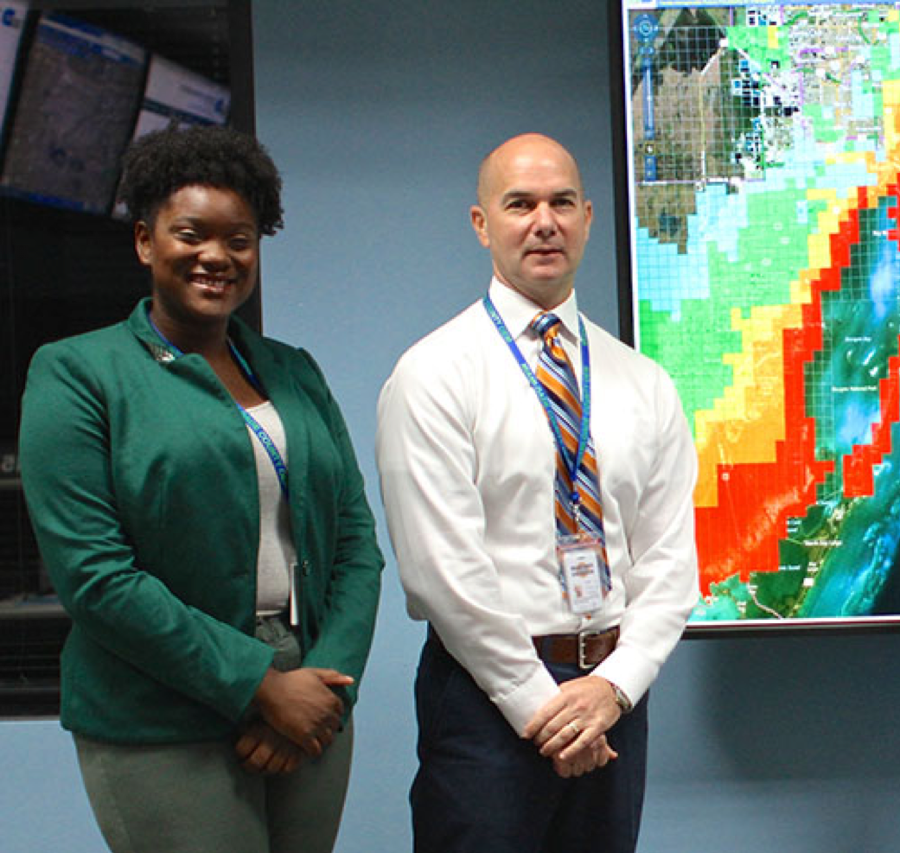Tuesday November 8, 2016
As a recent graduate of the Master's in Disaster Management program, China Walker offers some insight about the Academy's paid internship program.

Where did you intern?
I interned for the Miami-Dade County Office of Emergency Management in Spring 2016.
What did you do there?
I conducted best-practice research, participated in region-wide trainings with partner agencies, and contributed to preparedness briefings for locally elected representatives, partner agencies, and vendors. I was given the lead responsibility in consolidating the fiscal and administrative procedures that would be implemented during grey-sky situations to ensure that vital records are preserved during an event.
How did your work connect back to your studies?
The ability to learn from the county’s experienced emergency management professionals during the initial onset of Miami’s Zika outbreak connected back to coursework that focused on pandemics and epidemics. I learned the steps that the local, state and federal agencies undertook during this time reinforced the cyclical nature of preparedness. Readiness for an outbreak involves constant training, frequent enhancement and testing of plans, constant communication with local stakeholders, and the ability to improve gaps and capabilities.
The time dedicated in-class developing situation reports and leading team presentations positively contributed to my ability to effectively communicate and compose written documents during my internship. Throughout the internship, FEMA’s Comprehensive Preparedness Guide 101 endured as a critical reference and guide.
What was the best part of the internship?
Participating in the county’s functional exercises was an invaluable experience. As an active participant I was in frequent contact with master scenario event lists, GIS, after action reports, and incident action plans. This exposure from my internship helped me to land my current job and has made me a better employee.
What advice do you have for other students who are either looking for internships or who wish to get the most out of an internship?
Internships are a lot of work, but never let that stop you from finding time to make connections with the many faces that come and go. Even internships that do not lead to employment at your current opportunity can help you land the next job. Most importantly be sure to use your internship as a networking opportunity and never be too meek to ask for guidance from the office’s staff. I had my resume reviewed regularly as I gained new skills and they remain steadfast supporters of my professional development.
How did the experience impact your career goals?
Emergency management can seem like a relatively small field limited to the fire and police force; however, there a multitude of professionals who transverse and meld additional knowledge, skills, and abilities into their primary work. Ultimately this merging makes the field extremely multidimensional and intersectional. Emergency managers work frequently work with, or are trained themselves, in meteorology, seismology, public policy, governance, environmental science, statistics, and many other fields.
Ultimately my experience working with the local community and elected officials broadened my view of the profession and deepened my dedication to public and community service.
Pictured below is China with Curt Sommerhoff, Director of Miami-Dade County's Office of Emergency Management.
